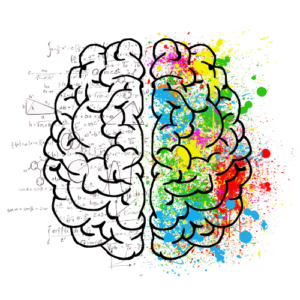
When we talk about Search Engine Optimization (SEO), the conversation usually revolves around algorithms, backlinks, meta tags, and keyword densities. While these technical aspects are undeniably essential, at the core of successful SEO lies an often-overlooked component: human psychology.
Understanding how people think, feel, and behave online can significantly influence your SEO strategies. Let’s delve deeper into the psychology behind SEO Cape Town and why it matters.
1. Search Intent
At its most basic, SEO is about ensuring that a website or a piece of content gets found by the right people. This means understanding not just what people are searching for, but why. Is the user looking to buy something? Maybe they’re seeking information or trying to find a local service. By understanding the psychology of search intent, content creators and SEO professionals can better tailor content to meet users’ needs.
2. Trust and Credibility
Search engines, especially Google, prioritize sites that appear trustworthy and authoritative. From a psychological perspective, users need to believe that the information they’re receiving is accurate and credible. Factors like a site’s backlink profile, its user engagement metrics, and even the quality of its content play roles in determining its perceived trustworthiness.
3. Emotionally Engaging Content
Humans are emotional beings. Content that evokes strong emotions, whether it’s humor, surprise, joy, or even sadness, tends to be more shareable and memorable. From an SEO standpoint, emotionally engaging content can lead to more backlinks, higher user engagement, and increased social shares—all beneficial for SEO.
4. User Experience (UX)
A seamless user experience is no longer just a nice-to-have; it’s essential. The ease with which users can navigate a site, the site’s load time, mobile optimization, and even the aesthetic appeal all play a role in UX. From a psychological viewpoint, a positive UX can increase user trust and encourage repeat visits.
5. Cognitive Load
Our brains can only process a limited amount of information at once. If a website or piece of content is too cluttered or challenging to understand, users may leave. For SEO, this can mean higher bounce rates and lower rankings. By understanding the limitations of human cognition, SEO experts can create content that’s easy to digest and navigate.
6. Social Proof
Humans are inherently social creatures, and we often look to others to validate our choices. In the world of SEO, reviews, testimonials, and social shares act as indicators of a site or piece of content’s value. They serve as social proof that what’s being offered is valuable or trustworthy.
7. Reciprocity
The principle of reciprocity is a powerful psychological tool. It dictates that when someone does something for us, we naturally want to return the favor. In the realm of SEO and content marketing, this can manifest in various ways, like offering valuable content for free in hopes that users will share it, link to it, or subscribe.
In Conclusion
SEO is as much an art as it is a science. While the technical details are crucial, understanding the psychological underpinnings of human online behavior can give SEO professionals an edge. By melding technical know-how with insights into human psychology, SEO experts can create more effective strategies that resonate with both search engines and the people using them.